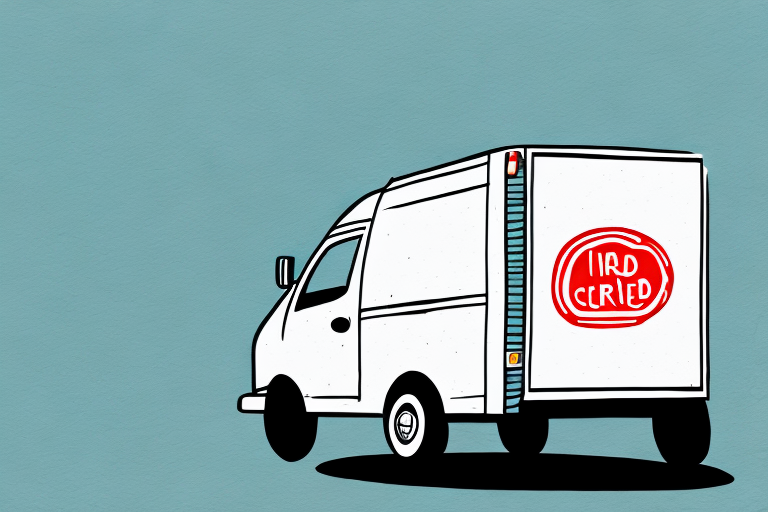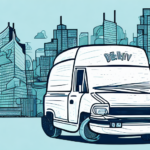What Is a Courier Driver? An Overview of the Job and Its Responsibilities
Courier drivers play an essential role in the economy by ensuring the timely delivery of packages, documents, and other items. Their job involves picking up parcels from senders and delivering them to recipients. The primary responsibility of a courier driver is to ensure that packages are delivered promptly, securely, and in good condition. In this article, we will explore what a courier driver does, the skills and qualifications required for the job, the different types of courier driving jobs available, and much more.
Skills and Qualifications Required to Become a Courier Driver
While there are no specific educational requirements for becoming a courier driver, certain skills and qualifications are essential:
- Valid Driver's License: A current driver's license with a clean driving record is mandatory.
- Time Management: Ability to plan routes efficiently to meet delivery deadlines.
- Communication Skills: Effective interaction with clients, customers, and colleagues.
- Physical Fitness: Capability to lift and carry packages of varying weights and sizes.
- Problem-Solving: Quickly finding alternative routes during unexpected road closures or delays.
- Technological Proficiency: Familiarity with GPS tracking and electronic signature systems.
Developing these skills can significantly enhance your effectiveness and reliability as a courier driver. According to the U.S. Bureau of Labor Statistics, continuous skill improvement can lead to better job performance and higher earnings.
A Day in the Life of a Courier Driver
A typical day for a courier driver begins early in the morning to ensure deliveries are made before cutoff times. Here's a breakdown of their daily routine:
- Morning: Receive a list of deliveries, organize them by priority and location, and plan the most efficient route.
- Throughout the Day: Pick up packages from various senders, navigate through traffic, interact with clients, update delivery statuses, and handle incoming communications.
- Afternoon: Continue deliveries, manage any unexpected issues such as traffic delays or difficult-to-find addresses.
- End of Day: Complete deliveries, prepare reports, handle payments, reconcile accounts, and ensure all deliveries are accounted for.
This fast-paced job requires excellent organizational skills and attention to detail to handle multiple tasks efficiently.
The Different Types of Courier Driving Jobs Available
The courier driving industry offers a variety of job types, each with its unique opportunities and challenges:
- Company-Employed Drivers: Work for large delivery companies that provide vehicles and a regular schedule.
- Independent Contractors: Use their own vehicles and have more flexibility over their schedules.
- Specialized Couriers: Focus on specific types of deliveries, such as medical couriers transporting delicate equipment or legal couriers handling important documents.
- Same-Day Delivery Drivers: Responsible for delivering packages within hours of the order being placed, requiring excellent time management and quick navigation through traffic.
Each type of courier driving job caters to different preferences and skills, allowing individuals to choose a role that best fits their lifestyle and career goals.
How Much Can You Earn as a Courier Driver? Salary Expectations Explained
The earnings of a courier driver vary based on factors such as location, experience, and job type. According to the U.S. Bureau of Labor Statistics, the median annual wage for parcel delivery drivers was approximately $35,000 in 2023, with a range typically between $25,000 and $50,000.
Independent courier drivers may have the potential to earn more by managing their own client base and taking on additional deliveries. However, earnings can fluctuate based on the volume of work and operational costs, such as fuel and vehicle maintenance.
Additionally, certain specialized courier roles, like medical or legal couriers, often offer higher pay due to the sensitive nature of the items being transported.
Common Challenges Faced by Courier Drivers and How to Overcome Them
Courier drivers encounter various challenges that can impact their efficiency and job satisfaction. Understanding these challenges and knowing how to address them is crucial:
- Traffic Congestion: Can cause delays and stress. Using real-time GPS navigation and planning routes during off-peak hours can help mitigate this issue.
- Inclement Weather: Adverse weather conditions can make driving hazardous. Staying informed about weather forecasts and ensuring vehicles are equipped for different conditions is essential.
- Handling Difficult Deliveries: Navigating to hard-to-find addresses or dealing with uncooperative recipients requires patience and problem-solving skills.
- Package Security: Preventing theft or damage by using secure packaging and vigilant handling practices.
- Time Management: Balancing multiple deliveries within tight deadlines requires effective scheduling and prioritization.
By proactively addressing these challenges, courier drivers can enhance their performance and job satisfaction.
Essential Tools and Equipment for Successful Courier Driving
Having the right tools and equipment is vital for the efficiency and safety of courier drivers:
- Reliable Vehicle: A well-maintained vehicle suited for the types of deliveries being made.
- GPS Navigation: Essential for route planning and avoiding traffic delays.
- Mobile Phone: For communication, receiving updates, and managing deliveries on the go.
- Delivery Management Software: Helps track deliveries, manage routes, and maintain records. Many courier companies use platforms that integrate with their systems.
- Safety Equipment: Includes seat belts, reflective clothing, and weather-appropriate gear to ensure personal safety.
- Package Handling Tools: Such as scanners for tracking deliveries and secure containers for transporting items.
Investing in quality equipment not only improves delivery efficiency but also enhances safety and customer satisfaction.
Safety Tips Every Aspiring Courier Driver Should Know
Safety is paramount for courier drivers, given the substantial time spent on the road. Here are some essential safety tips:
- Regular Vehicle Maintenance: Ensures that the vehicle is in good working condition, reducing the risk of breakdowns or accidents.
- Adherence to Traffic Laws: Following speed limits and traffic signals helps prevent accidents and fines.
- Defensive Driving: Being aware of other drivers and anticipating potential hazards can prevent collisions.
- Secure Cargo: Properly fastening packages to prevent shifting or falling during transit.
- Personal Well-Being: Taking regular breaks, staying hydrated, and avoiding fatigue are crucial for maintaining alertness and reaction times.
Additionally, being aware of the surrounding environment and adjusting driving behavior based on weather and road conditions can significantly enhance safety.
The Future of Courier Driving: Technological Advancements and Industry Trends
The courier driving industry is evolving rapidly, driven by technological advancements and changing consumer demands:
- Autonomous Vehicles: Companies like Google and Tesla are developing self-driving vehicles that could revolutionize package delivery by operating around the clock without human drivers.
- Drone Deliveries: Drones are being tested for last-mile deliveries, offering faster and more efficient service, especially in urban areas.
- Artificial Intelligence: AI is used for route optimization, predicting delivery times, and enhancing overall operational efficiency.
- Smart Lockers: Automated lockers provide secure and convenient pickup and drop-off points for customers, reducing the need for in-person deliveries.
- Sustainability Initiatives: There is a growing focus on eco-friendly delivery practices, including the use of electric or hybrid vehicles and optimized routing to reduce emissions.
Staying informed about these trends and adapting to new technologies will be essential for courier drivers to remain competitive and offer top-tier service.
How to Get Started as a Courier Driver: Step-by-Step Guide for Beginners
If you're interested in becoming a courier driver, follow these steps to get started:
- Research the Industry: Understand the different types of courier driving jobs and identify which aligns best with your skills and interests.
- Obtain a Valid Driver's License: Ensure you have the appropriate license required for the type of vehicle you will be driving.
- Build a Clean Driving Record: A spotless driving history enhances your employability and can lead to better job opportunities.
- Gain Relevant Experience: Consider starting with part-time driving jobs to build experience and understand the demands of the role.
- Acquire Necessary Equipment: Depending on the job type, you may need to invest in a reliable vehicle and safety gear.
- Apply for Positions: Look for job openings with reputable courier companies or consider starting as an independent contractor.
- Obtain Additional Certifications: For specialized courier roles, such as medical or hazardous materials transport, additional certifications may be required.
Following these steps will help you establish a solid foundation for a successful career in courier driving.
Building a Successful Career as a Courier Driver: Growth Opportunities and Advancement Paths
Courier driving offers numerous opportunities for career growth and advancement:
- Freelance Courier: Build your own client base, offering specialized services to increase earnings and flexibility.
- Supervisory Roles: Progress to positions such as fleet manager or dispatch supervisor within larger companies.
- Logistics and Management: Transition into broader roles within logistics, including supply chain management or warehousing.
- Entrepreneurship: Start your own courier or delivery business, leveraging industry knowledge and experience.
Investing in continuous learning and skill development can open doors to these advanced career paths, enhancing both job satisfaction and earnings potential.
Comparing the Pros and Cons of Working as an Independent Contractor vs. Working for a Company
When choosing a career path in courier driving, you can either work as an independent contractor or as an employee for a delivery company. Here are the advantages and disadvantages of each:
Independent Contractor
- Pros:
- Greater flexibility in scheduling and route selection.
- Potential for higher earnings based on the number of deliveries.
- Ability to choose the types of deliveries and clients.
- Cons:
- Responsible for covering all business expenses, including vehicle maintenance and insurance.
- Inconsistent income due to fluctuating demand.
- Must handle all administrative tasks such as taxes and record-keeping.
Working for a Company
- Pros:
- Stable income with regular paychecks.
- Company-provided benefits such as health insurance and retirement plans.
- No need to manage business expenses or administrative tasks.
- Cons:
- Less flexibility in scheduling and route selection.
- Potentially lower earnings compared to independent contractors.
- Adherence to company policies and procedures.
Ultimately, the choice between being an independent contractor or working for a company depends on your personal preferences, financial goals, and desired work-life balance.
Conclusion
Courier driving is a challenging and rewarding profession that plays a crucial role in the delivery and logistics industry. By understanding the responsibilities, acquiring the necessary skills, and staying informed about industry trends, you can build a successful career as a courier driver.
Whether you choose to work independently or for a company, prioritizing safety, efficiency, and customer satisfaction will help you stand out in this competitive field. Additionally, embracing new technologies and adapting to evolving industry standards will ensure long-term success and career growth.
If you're ready to embark on a career in courier driving, take the necessary steps to prepare and invest in your professional development. With dedication and the right approach, courier driving can offer a fulfilling and lucrative career path.




















